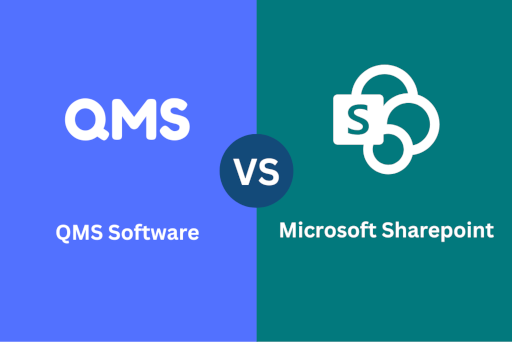Optimizing Operational Efficiency: QMS Software vs. Additional Staff Member

Introduction:
When businesses aim to enhance operational efficiency, they often find themselves contemplating between hiring additional staff members or investing in a Quality Management System (QMS) software. Both options hold the potential to improve productivity, but it is crucial to assess the long-term benefits and choose the solution that aligns best with the business’s unique requirements. In this article, we will compare the advantages of adding another staff member against implementing a QMS software, exploring how each option can optimize operational efficiency and promote sustainable growth.
Streamlined Processes and Automation:
One of the primary advantages of implementing a QMS software is the streamlining of business processes through automation. Manual methods often involve time-consuming tasks, human errors, and inconsistencies. With a QMS software, routine activities like document control, non-conformance management, and audits can be automated, saving valuable time and effort. This automation not only increases efficiency but also reduces the risk of errors and discrepancies, ensuring that standardized processes are consistently followed across the organization.
Scalability and Adaptability:
As businesses grow and evolve, the need for scalability becomes paramount. Adding another staff member may provide temporary relief, but it might not accommodate future expansion. On the other hand, a QMS software offers a scalable solution that can adapt to changing business needs. It can handle increasing volumes of data, accommodate complex workflows, and support the implementation of new processes or regulatory requirements. By implementing a QMS software, businesses can future-proof their operations, ensuring that the system can grow and evolve alongside the organization.
Improved Collaboration and Communication:
Effective collaboration and communication are vital for seamless business operations. While adding another staff member may increase manpower, it might not necessarily enhance collaboration among existing team members. In contrast, QMS software often includes features designed to foster collaboration, allowing multiple users to access, edit, and share information in real-time. This promotes transparency, coordination, and teamwork, enabling employees to work together efficiently regardless of their physical location. By implementing QMS software, businesses can enhance cross-functional collaboration and streamline communication channels, resulting in increased productivity and improved decision-making.
Data Management and Analysis:
Efficient data management and analysis are essential for informed decision-making and continuous improvement. Adding another staff member may help with data entry and basic analysis, but it might not provide the comprehensive insights offered by a QMS software. QMS software facilitates structured data storage, retrieval, and analysis, allowing businesses to generate comprehensive reports, track key performance indicators (KPIs), and identify trends or areas for improvement. By leveraging the data management capabilities of QMS software, businesses can make data-driven decisions, improve operational efficiency, and drive sustainable growth.
Conclusion:
When it comes to optimizing operational efficiency and promoting growth, implementing QMS software stands out as a robust and versatile solution. Compared to hiring additional staff members, a QMS software offers streamlined processes, scalability, improved collaboration, and advanced data management capabilities. Trackmedium QMS software, in particular, provides a comprehensive and reliable solution for businesses looking to optimize their operations. With its automation features, scalability, collaboration tools, and robust data management capabilities, Trackmedium QMS empowers businesses to streamline processes, enhance productivity, and achieve sustainable growth. By choosing a QMS software like Trackmedium QMS, businesses can lay a solid foundation for success in today’s competitive landscape.




